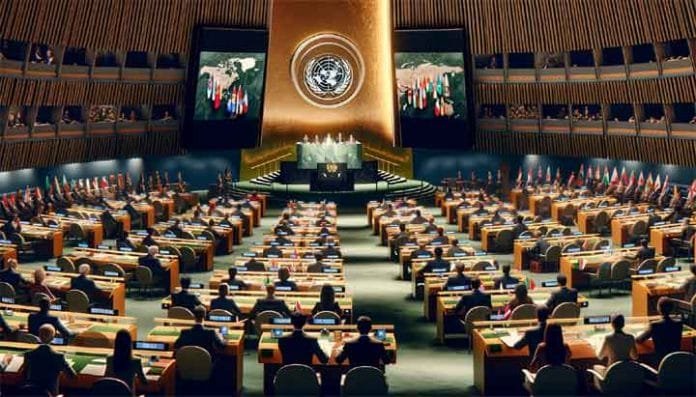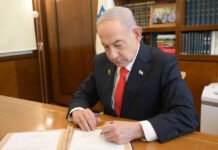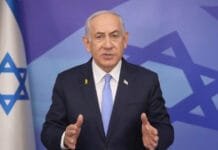INVC NEWS
Geneva : The United Nations General Assembly has renewed its appeal to Israel, urging the country to withdraw from the Syrian Golan Heights. This resolution has garnered substantial attention worldwide, reflecting the ongoing complexities in Middle-Eastern diplomacy. The decision, marked by a vote with 91 in favor, 8 against, and 62 abstentions, underscores a critical juncture in the long-standing dispute over this strategically vital region.
Historical Context: The Significance of the Golan Heights
The Golan Heights, a region of paramount strategic importance, has been under Israeli control since 1967. This area, known for its fertile lands and vital water resources, has been a point of contention between Israel and Syria for decades. The 1967 Six-Day War marked a turning point, with Israel capturing the Golan Heights from Syria. This annexation has been a topic of international debate, with many countries and international organizations, including the United Nations, not recognizing Israeli sovereignty over the area.
The Resolution: A Call for Peace and Stability
The recent resolution by the United Nations General Assembly highlights the international community’s concern over Israel’s continued presence in the Syrian Golan. The resolution explicitly deems Israeli settlement construction and other activities in the occupied Syrian Golan as illegal. This stance is grounded in international law, particularly the principles outlined in the Geneva Conventions, which prohibit the acquisition of territory by force and the transfer of an occupying power’s population into the occupied territory.
International Reactions and Implications
The voting pattern in the United Nations General Assembly reflects a diverse range of international perspectives on the Israel-Syria conflict. The majority vote in favor of the resolution indicates a significant level of global concern regarding the situation in the Golan Heights. However, the abstentions and votes against the resolution also point to the complexities and varied interests of the member states in this intricate geopolitical scenario.
Israel’s Position and Strategic Concerns
Israel has consistently argued that its control over the Golan Heights is essential for its national security, given the region’s strategic location. The highlands provide Israel with a critical vantage point and a buffer against potential military threats from Syria. Additionally, the area is significant for water resources and agricultural potential, further underscoring its importance to Israel.
Syria’s Stance and Territorial Sovereignty
Syria has consistently claimed the Golan Heights as its sovereign territory, emphasizing the region’s historical and cultural significance to the Syrian people. The Syrian government views Israel’s occupation and settlement activities as a blatant violation of its territorial integrity and a major impediment to peace in the region.
The Road Ahead: Prospects for Peace and Resolution
The resolution by the United Nations General Assembly, while symbolic, brings renewed attention to the necessity of finding a peaceful resolution to the Golan Heights dispute. It highlights the need for continued dialogue and negotiations, with an emphasis on respecting international law and the principles of territorial integrity and sovereignty. The resolution serves as a reminder of the enduring complexities in the Middle East and the importance of diplomatic efforts in resolving such longstanding conflicts.
Navigating the Path to Stability
The United Nations General Assembly’s appeal for Israel to withdraw from the Syrian Golan Heights is a significant development in international relations. It reflects the ongoing challenges and the need for a concerted effort towards achieving peace and stability in the Middle East. As the global community continues to grapple with these issues, the resolution serves as a critical point of reference and a call to action for all stakeholders involved in this enduring conflict.
















